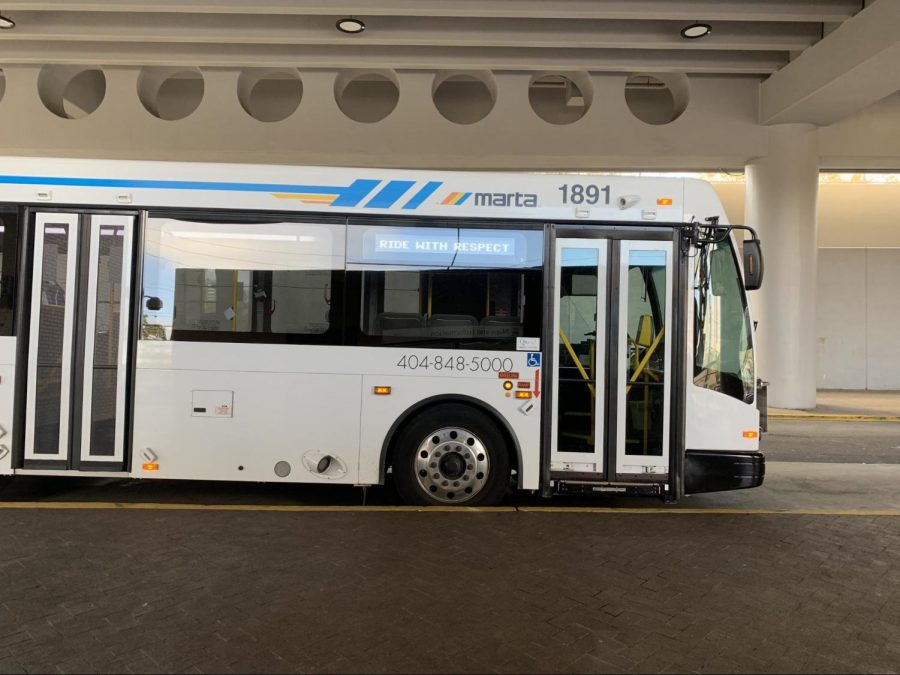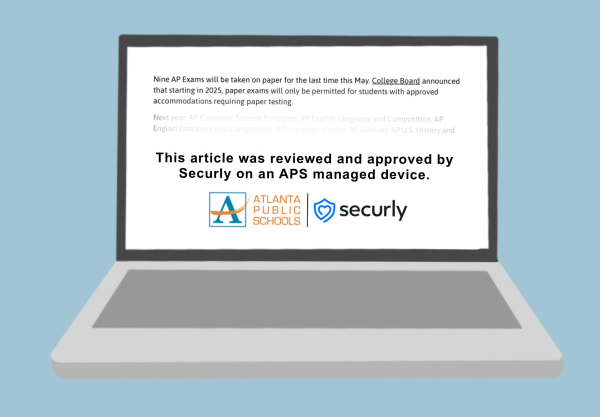Gwinnett County rejects Marta Expansion
April 19, 2019
For a third time, Gwinnett County voters rejected a referendum to expand public transit, marking yet another defeat for pro-MARTA advocates. The referendum, which included a 1 percent increase in sales tax to pay for the expansion, garnered 46 percent support.
According to Everton Blair, a member of the Gwinnett County Board of Education who supported the referendum, the push for MARTA expansion in Gwinnett is still strong despite the outcome of the vote.
“This is kind of a setback, but it’s not an end-all, be-all,” Blair said. “We have a strong set of folks on our Board of Commissioners that are dedicated to finding creative solutions to Gwinnett traffic and transit issues.”
Since a vote last failed in 1990, a continued push by activists has kept expansion in the minds of residents. With this year’s vote as the closest yet and likely not the last, many see passage as inevitable.
While Blair was discouraged by the outcome of the vote, he believes a poorly-scheduled election resulted in the referendum’s failure, pointing to low voter turnout as evidence. Over 300,000 Gwinnett voters participated in the November 2019 midterm elections, but only around 90,000 cast votes on March 19 when the referendum was on the ballot.
“I don’t think the MARTA referendum was representative of the electorate or the whole county’s sentiment around mass transit and the need for mass transit,” Blair said. “It was a really missed opportunity to not just put the MARTA referendum on the November election.”
Dre Normando Love, a Gwinnett County voter who supported the referendum, agrees. Love was one of many Gwinnett residents who participated in canvassing and phone banking efforts leading up to the vote. Despite these efforts, he says many voters were still unaware of the referendum and believes it should be reconsidered.
“A lot of people didn’t know about the election,” Love said. “I think we should give it another chance.”
For Love, who has lived in the county for around three years, the issue of MARTA expansion is personal. A public transit user, he sees a clear need for MARTA in the suburban county, which is the state’s second largest behind Fulton County.
“I voted for MARTA because I take the Gwinnett transit system, and it’s awful,” Love said. “It’s time for changes in Gwinnett.”
Joshua Looby, a former resident of the county who now splits time between Atlanta and New York, agrees that public transit in Gwinnett needs improvements. However, due to worries about MARTA’s current operations, he opposed the referendum.
“MARTA needs to expand, but they have too many internal issues in their company that they need to address and fix first,” Looby said. “Expanding without fixing that is just going to make those issues worse.”
Specifically, Looby points to financial mismanagement by the agency, which he says has led to higher than necessary fares and poor maintenance. Until this problem is fixed, he believes expanding MARTA in Gwinnett is a disservice to the county’s residents who will feel the burden.
“Gwinnett residents would be paying for the MARTA stations and new trains and new rail,” Looby said. “It was a bailout, and that’s not how government should operate.”
Nevertheless, many Gwinnett residents, including Blair and Love, supported the referendum and hope that with better education, better voter outreach and better election scheduling, the fourth time might be the charm.
“People who voted no, they should have a change of heart and look at the positive things that MARTA will bring. Companies will come out here, more jobs will come out here, and it will stop pollution,” Love said. “It’s time for change. It’s time for people to move Gwinnett forward.”













